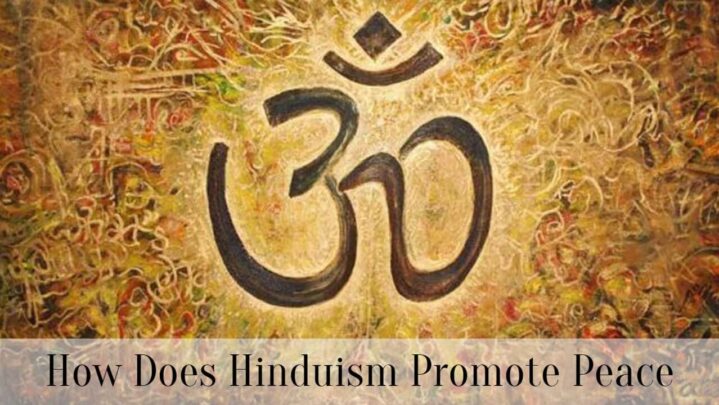It has a profound philosophical and cultural foundation that fosters peace and harmony among all people. Hinduism supports peace in numerous ways, which are addressed more below.
Ahimsa (nonviolence): Ahimsa is Hinduism’s basic idea that advocates nonviolence in all phases of life. This idea encourages treating all living beings, including animals and plants, with compassion and respect. Those who practice Ahimsa can prevent disputes and foster peace.
Karma is the notion of cause and effect, in which every action has a result. This philosophy advises people to treat others with kindness and compassion in order to generate good energy, which leads to peace.
Dharma: Dharma refers to an individual’s moral obligation and responsibility to society and the world. This concept encourages people to treat others with integrity, honesty, and compassion, thus encouraging peace and harmony.
Meditation: Meditation is an important aspect of Hinduism since it fosters inner serenity and quiet. Regular meditation can help people reduce stress and anxiety, which can lead to more peaceful and harmonious interactions with others.
Tolerance and Acceptance of Other Religions, Cultures, and Beliefs: Hinduism teaches tolerance and acceptance of other faiths, civilizations, and beliefs. Hindus may foster peace and harmony by embracing variety and appreciating individual differences.
Service to Others: Hinduism urges people to serve others and contribute to the advancement of society. Individuals may promote peace and harmony in their communities by offering assistance and support to those in need.





